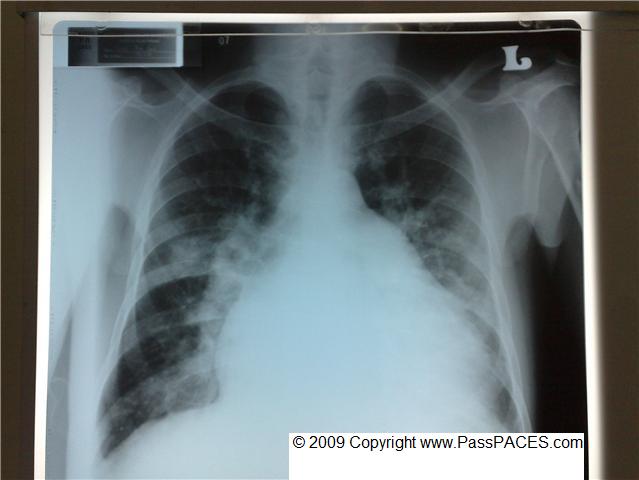
|
|
|||||
|
|
|
|
|
|
|
![]()
YOUR MRCP PACES IS HERE!
Station 2: You are the SHO in charge of the chest ward.

Subject: Mr Muhammad, a 35-year old Malaysian and a UK PR for 15 years.
Dear Dr,
Mr Muhammad came to see me 1 week ago complaining of coughing for 2 weeks. He is a Malaysian recently came back from Malaysia about 1 month ago. I have given him a course of antibiotics but he came back to see me again today due to similar problem. I have advised him to see you.
Regards,
Dr Oh Pee De
You have 14min until the patient leaves the room, followed by 1min for reflection before the discussion with the examiners.
Discussion:
This is a common case you will get for your MRCP PACES examination. I think there are a few symptoms that are popular in MRCP PACES- chest pain, fever, diarrhoe, headache,cough etc. Today, we are going to discuss about possible causes of coughing. I always tell my junior doctors that during the first 5 min of clerking, always let your patientdo the talking Remember to listen to your patient and do not interrupt if possible, then follow the following rules, ask you patient systematically as follow,
![]() 1)Onset of the symptom, duration and progression of the symptom,
1)Onset of the symptom, duration and progression of the symptom,
![]() 2)Severity of symptom- objective and subjective assessment,
2)Severity of symptom- objective and subjective assessment,
![]() 3)Relieving and precipitating factors,
3)Relieving and precipitating factors,
![]() 4)Associated symptoms,
4)Associated symptoms,
As for this case, of course you want to know how the symptom has started, the duration of the cough and over the period, whether the symptom get better/ worse etc. I also think that severity of symptom is important and you should make every effort to get this piece of information. I always tell the candidates you can ask you patient to tell you the severity of a symptom objectively or subjectively, for example, severity of chest pain can be measured fro a scale of 1 to 10 ( objective assessment). For this case, you can assess the severity of cough by asking whether the symptom affect the patient's sleep, daily activity or even work.
Sometimes you can get some clues by asking the precipitating and relieving factors of a symptom, anyway I still think that you always can come to a diagnosis after getting all important associated symptoms. For example in this case, associated symtpms include fever, productive or non productive cough, wheezing etc.
Remember to list all possible differential diagnosis before entering the room to clerk your patient. There are a few ways to remember possible diagnosis to avoid missing anything. I like to classify into various systems- causes due to CVS, respiratory, GIT, CNS etc. However, always consider autoimmune disease, drug-induced, inherited (congenital) and metabolic causes as your possible differential diagnosis.
For this case, although majority causes of cough are respiratory related- pneumonia, tuberculosis,asthma, bronchiectasis etc, you should consider other systems as well. For CVS, heart failure might give a symptom of cough when patient lies down, as for GIT, reflux oesophagitis might cause coughing during night time etc. Of course do not forget about drug-induced especially beta blocker and ACE-I.
My friend actually got this case during his MRCP PACES and the final diagnosis actually was ACE-I induced cough because patient was started on anti-hypertensive ( perindopril) when he went back to Malaysia. My freind failed this station because he put all his time thinking that this patient was having tuberculosis!
Extra points:
| ID:2 | Created: 31 March 2009 |
Interesting Images in Clinical Medicine.

Case History:
Mr Ching is a 45-year old Chinese gentleman who comes to hospital complaining of SOB on exertion for months. Physical examination revealed pansystolic murmur over left sternal edge with loud P2.Please describe yhe CXR above. What is the abnormality and what is the probable diagnosis??
To see previous issues, click here! To send a quick comment, click here!
